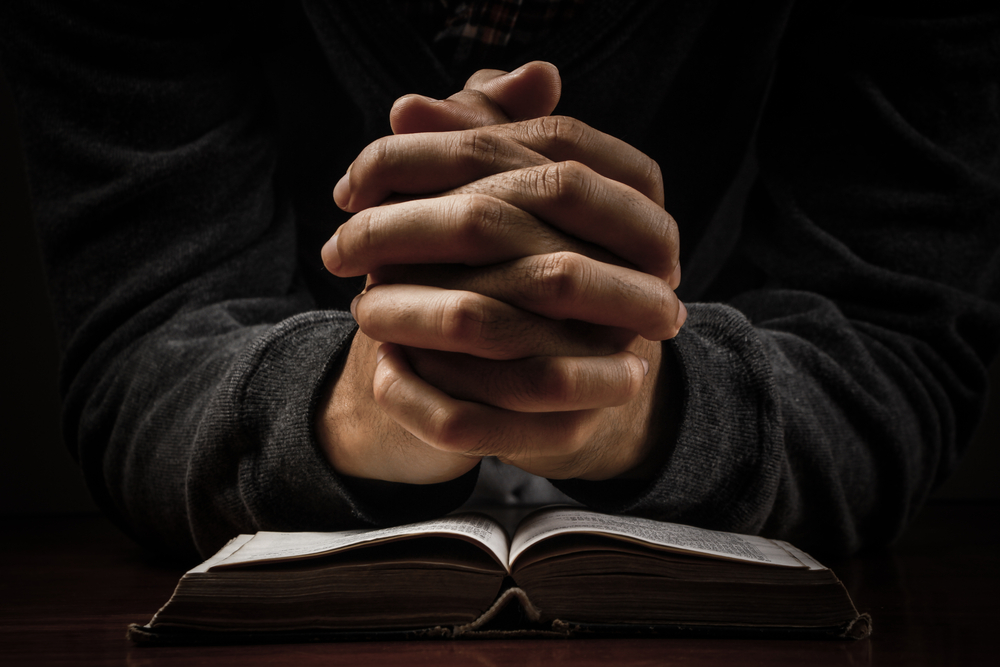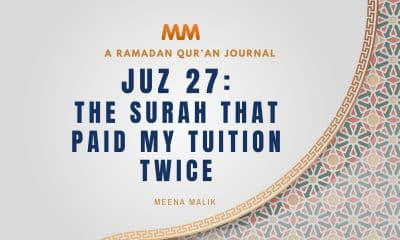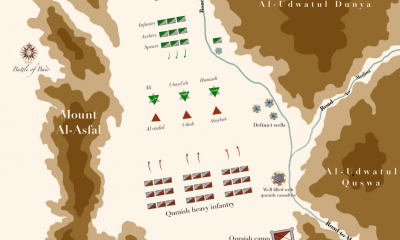#Current Affairs
Diversity in Community Representation at the White House Meet with Obama
Published

Crossposted from the Muslim Link
By Hena Zuberi
For the first time in his two terms in the Oval Office, on February 6, 2015, President Obama met with leaders of the Muslim community for an hour-long ‘frank and open exchange with the President’.
Keep supporting MuslimMatters for the sake of Allah
Alhamdulillah, we're at over 850 supporters. Help us get to 900 supporters this month. All it takes is a small gift from a reader like you to keep us going, for just $2 / month.
The Prophet (SAW) has taught us the best of deeds are those that done consistently, even if they are small. Click here to support MuslimMatters with a monthly donation of $2 per month. Set it and collect blessings from Allah (swt) for the khayr you're supporting without thinking about it.
“We requested a session, as the President has met with others, such as labor leaders, African American and Jewish American leaders — it was time for him to meet with American Muslim leadership,” shares Farhana Khera, founder and President of Muslim Advocates, who spearheaded the meeting.
Khera says the meeting came at a prime time— when public officials and media channels are questioning the loyalty of American Muslims.
Invitees drew Obama’s attention to the rising anti-Muslim bigotry in the U.S. being fueled by some politicians and organizations, and asked him to use his influence to ‘help shape the national conversation on hate against Muslims and other religious minority communities.’ Also present were Obama’s senior adviser Valerie Jarrett, National Security Adviser Susan Rice and Deputy National Security Adviser Ben Rhodes. The meeting was followed by 45 minutes of additional discussions with Jarrett and Rhodes, according to statements.
With a focus on domestic issues the round table represented those contributing to American society: successful, engaged professionals- from civil right organizations to research think tanks, from academia to business. On the table was the Affordable Care Act, issues of anti-Muslim violence and discrimination, the 21st Century Policing Task Force, and the White House Summit on Countering Violence Extremism, according to the official White House statement.
Kameelah Mu’min Rashad, founder of the Muslim Wellness Foundation, is a chaplain at University of Pennsylvania, a mental health professional and a grassroots activist for Make it Plain —Philadelphia. She brought to the President’s attention the emotional and mental impact of anti-Muslim bigotry and the cumulative affects that it has had on the Muslim community over the past 15 years.
The double burden of religious discrimination and dealing with structural oppression, Rashad says, is taking a toll on the African American Muslim population, a vital segment of the American Muslim community with a long history dating back to the days of slavery. She shared with the President that African American Muslims are ‘uniquely vulnerable due to religious discrimination, and the effects of racial profiling— racial battle fatigue and racial micro-aggressions.’
Rashad told the Muslim Link that she shared in the White House roundtable with President Obama that — despite the community’s emotional fatigue — American Muslims have been resilient and have made great strides. If American Muslims have managed to contribute so much, despite the anti-Muslim bigotry, imagine how productive and how many more contributions can be made to the broader society if more attention is paid to curb discrimination of Muslims, Rashad said.
“The roundtable offered American Muslims leaders the opportunity to share directly our varied concerns, issues, hopes and accomplishments,” pointed out Rashad.
She also discussed the psychological trauma of a hyper vigilant community seeing its faith on trial in the media cycle and internalizing this stimulus. She asked for collaboration with the Office of Neighborhood and Faith based partnerships, the Muslim Wellness Foundation and Muslim mental health professionals.
Rashad, who trains American Muslim community members as mental health first aid responders, discussed with the Muslim Link the lack of studies about the psychological effects on the American Muslim community.
Rashad was very satisfied with how the community was represented at the roundtable and says that American Muslims need to hold themselves to a higher standard, to think differently about how our community is represented, she said.
“The opportunity and the diversity were very reassuring.”
Many times African American, youth and women’s voices are missing. “The racial, cultural, gender and sectarian diversity of the attendees reflected the diversity within the American Muslim community at large,” she said. The community needs to take step to make sure any future discussions about the community are as inclusive as [the White House meeting] she said.
The presence of Dr Sherman Jackson, professor of religion and American Studies and Ethnicity at the University of Southern California, reassured leaders who have been concerned about the exclusion of the African American voice from Muslim organizations. Imam Luqman Ahmed, a religious scholar from Sacramento, CA calls him an ‘exceptionally qualified voice to speak on the broad and dichotomous concerns of both immigrant, and indigenous Muslims.’
In a comedy piece invitee Dean Obeidullah, a columnist for the Daily Beast and a stand up comedian, and a twitter hashtag #Muslimmeeting lightened the mood ahead of the right wing firestorm about the meeting.
Some critics in the Muslim community noted that participants have to know that the President knows the system and is part and parcel of the system that oppresses people here and abroad.
Of concern was the fact that as Muslims were meeting Obama, Dr Sami Al Arian, a Florida professor, was being deported from the United States to Turkey after a 12 year ordeal, despite all charges being dropped against him—as a Palestinian American he cannot return to his home.
When asked if Dr Sami Al Arian, foreign policy, drones, Ferguson, Guantanamo Bay, Palestine and other such issues were raised at the meeting, Khera refrained from commenting saying under the terms of the roundtable she cannot comment on the issues that were brought up by other Muslim leaders.
Khera understands the cynicism of a traumatized Muslim community, but hopes that people will continue to remain engaged with government officials.
Noting the importance of sharing the effect government policies have on the community, Khera presented a greeting card to the President from two young Muslim Californian elementary school students who are fearful for their future.
“[The] focus was domestic concerns such as racial profiling, discrimination, mental health and the emotional well-being of the Muslim community,” said Rashad. She emphasized that by focusing only on foreign policy concerns, American Muslims risk sidelining the discussion about their health, future and religious identity in America.
Speaking to the Muslim Link, Rashad shared some stories of students who are scared to use the word “Allah” in public or excerpts from the Quran on university campuses, worried about being perceived as the “wrong kind” of Muslims, especially when countering violent extremism focuses solely on Muslims. This is detrimental to the soul of the community.
Khera urged the White House hold a summit for American Muslim youth.
The benefit of these exchanges according to Khera is that many public officials live in a bubble and dont realize the effect that policies are having on the lives of American Muslims. As a former counsel for Senator Russell D. Feingold (D-WI), the Chairman of the Constitution Subcommittee, she has seen the way public officials work and knows that it is important for them to hear real stories of the impact of their policies.
The Asks
Khera focused on domestic policies; bringing up the fact that there is no Muslim representation in federal courts, she asked for a Muslim judge to be nominated. Another major push was for uniform federal state laws regarding profiling.
In December 2014, Attorney General Eric Holder revised racial profiling guidance for federal law enforcement. Khera says that Holder took the right step to fix the free reign given to the FBI under John Ashcroft,
The Attorney General banned profiling based on race and ethnicity, but granted exceptions for national security and border protection.
Many civil rights groups considered the exceptions a kind of permission to discriminate especially against Muslims in the wake of the 9/11 terrorist attacks. “It’s baffling that even as the government recognizes that bias-based policing is patently unacceptable, it gives a green light for the FBI, TSA, and CBP to profile racial, religious and other minorities at or in the vicinity of the border and in certain national security contexts, and does not apply the [Attorney General’s] Guidance to most state and local law enforcement,” ACLU Washington Legislative Office Director Laura W. Murphy said in a statement.
Policies that give carte blanche to the FBI to send informants into masajid have to be changed. “That is unconstitutional— to enter without evidence into spaces and take notes and collect information. It sends the signal that it is okay for the public to target the community,” said Khera.
“The pendulum has swung too far,” Khera said she expressed to the President. “That was J Edgar Hoover’s legacy and the nation learned a lesson [then],” she said.
Hoda Elshishtawy of the Muslim Public Affairs Council gave the President a list of highly qualified American Muslim professionals to consider for appointed positions within the Administration. “These individuals come from a variety of industries including STEM, national security, foreign policy and education. These Americans are building bridges between our nation and Muslim communities worldwide and are eager to serve our country at the highest levels possible,” she said in a statement.
Khera said that American Muslims need the Democrats in office to stand up for the American Muslim community when elected officials use anti-Muslim language.
The President of the Islamic Society of North America, Azhar Azeez, requested that President Obama visit a masjid in the U.S. before his term ends. President Obama has yet to visit a masjid since his election in 2008.
As a chaplain to young Muslims at the University of Pennsylvania campus, Rashad was excited that a young basketball player, Bilquis Abdul Qadir represented Muslim youth.
Terms of Engagement
It was a White House decision to delay the release of names of participants. None of the participants had a problem with their names being released. The rules of disclosure were standard to all closed-door meetings with the President. “Under the terms of engagement and in order to ensure a frank and candid discussion, we agreed that we would not quote or characterize the President or other participants,” shared Khera, hoping to put conspiracy theories to rest.
“We are eager to follow up with our ‘asks’ and request people to watch for public statements,” says Khera. ìIt is upon the community and advocacy organizations to follow up with the ‘asks’, added Rashad.
Shahed Amanullah, formerly Senior Adviser for Technology at the State Department said that the door is open in ways that were unimaginable 10 years ago, but it takes two to tango.
“I also believe that any attendee to an event like this needs to first be open with their community, but more importantly leave their nafs at the door. This isn’t about fundraising or scoring public relations points — it is about being a partner in governance, and that is a long-term strategy. If you go in just to ‘speak truth to power’, that is the only victory you will have and you will have wasted an opportunity,” he said.
Amanullah added that it is the responsibility of the invitees to engage with the communities where they come from.
Also present was Silver Spring, Maryland native, Haroon Mokhtarzada, CEO of Webs, a multi-million dollar, free and premium web hosting service. Mokhtarzada serves on American Express Open’s Digital Advisory Board and is a member of the United Nations Foundation Global Entrepreneurs Council.
Arshia Wajid, founder of American Muslim Health Professionals, Diego Arancibia, board member and associate director of the Ta’leef Collective, a third space for American converts, Farhan Latif, chief operating officer and Director of Policy Impact at the Institute for Social Policy and Understanding, Rahat Hussain, president of the Shia community’s Universal Muslim Association of America, and Maya Berry, of the Arab American Institute also participated in the meeting.
A day after the meeting, at the National Prayer Breakfast on February 7, 2015, President Obama stated that terrorists who “professed to stand up for Islam. . .in fact are betraying it.”
He also described the terrorist group ISIS as “a brutal, vicious death cult that, in the name of religion, carries out unspeakable acts of barbarism.”
The president added: “Lest we get on our high horse and think this is unique to some other place, remember that during the Crusades and the Inquisition, people committed terrible deeds in the name of Christ. In our home country, slavery and Jim Crow all too often was justified in the name of Christ.”
“The changes are not going to be overnight, we should be on a watch to see the signals from the White House,” says Khera. And at the same time she says the community has a lot of work to do.
On her end, Kameelah Rashad says she will be following up with the Office of Faith-based and Neighborhood Partnerships.
Keep supporting MuslimMatters for the sake of Allah
Alhamdulillah, we're at over 850 supporters. Help us get to 900 supporters this month. All it takes is a small gift from a reader like you to keep us going, for just $2 / month.
The Prophet (SAW) has taught us the best of deeds are those that done consistently, even if they are small. Click here to support MuslimMatters with a monthly donation of $2 per month. Set it and collect blessings from Allah (swt) for the khayr you're supporting without thinking about it.
Hena Zuberi is the Editor in Chief of Muslimmatters.org. She leads the DC office of the human rights organization, Justice For All, focusing on stopping the genocide of the Rohingya under Burma Task Force, advocacy for the Uighur people with the Save Uighur Campaign and Free Kashmir Action. She was a Staff Reporter at the Muslim Link newspaper which serves the DC Metro. Hena has worked as a television news reporter and producer for CNBC Asia and World Television News. Active in her SoCal community, Hena served as the Youth Director for the Unity Center. Using her experience with Youth, she conducts Growing Up With God workshops. hena.z@muslimmatters.org Follow her on Twitter @henazuberi.


[Podcast] Palestine in Our Hearts: Eid al-Fitr 1445 AH

Foreign Affairs Official Resigns Over Gaza Genocide

A Ramadan Quran Journal: A MuslimMatters Series – [Juz 30] Solace For The Sincere And Vulnerable

IOK Ramadan: The Importance of Spiritual Purification | Keys To The Divine Compass [Ep30]

IOK Ramadan: The Power of Prayer | Keys To The Divine Compass [Ep29]

IOK Ramadan: 7 Qualities of Highly Effective Believers | Keys To The Divine Compass [Ep18]

IOK Ramadan: Choose Wisely | Keys To The Divine Compass [Ep15]

IOK Ramadan: Shake the Trunk of the Tree | Keys To The Divine Compass [Ep16]

IOK Ramadan: They Were Not Created Without Purpose | Keys To The Divine Compass [Ep23]

IOK Ramadan: Appreciating the Prophet ﷺ | Keys To The Divine Compass [Ep22]

IOK Ramadan: The Importance of Spiritual Purification | Keys To The Divine Compass [Ep30]

IOK Ramadan: The Power of Prayer | Keys To The Divine Compass [Ep29]

IOK Ramadan: The Weight of the Qur’an | Keys To The Divine Compass [Ep28]

IOK Ramadan: Families of Faith | Keys To The Divine Compass [Ep27]

IOK Ramadan: Humility in Front of the Messenger | Keys To The Divine Compass [Ep26]
Trending
-
#Islam2 weeks ago
IOK Ramadan: 7 Qualities of Highly Effective Believers | Keys To The Divine Compass [Ep18]
-
#Islam2 weeks ago
IOK Ramadan: Choose Wisely | Keys To The Divine Compass [Ep15]
-
#Islam2 weeks ago
IOK Ramadan: Shake the Trunk of the Tree | Keys To The Divine Compass [Ep16]
-
#Islam2 weeks ago
IOK Ramadan: They Were Not Created Without Purpose | Keys To The Divine Compass [Ep23]






Ali Mgutu Kiguzo
March 13, 2015 at 10:00 AM
Salamalykum please send me new
Abdullah Reed
March 15, 2015 at 8:46 PM
Assalaamu alaykum wa rahmatullah wa barakaatuhu. Thanks for the article. Do you have any detailed information about eating right in the modern world?
Thanks, Abdullah